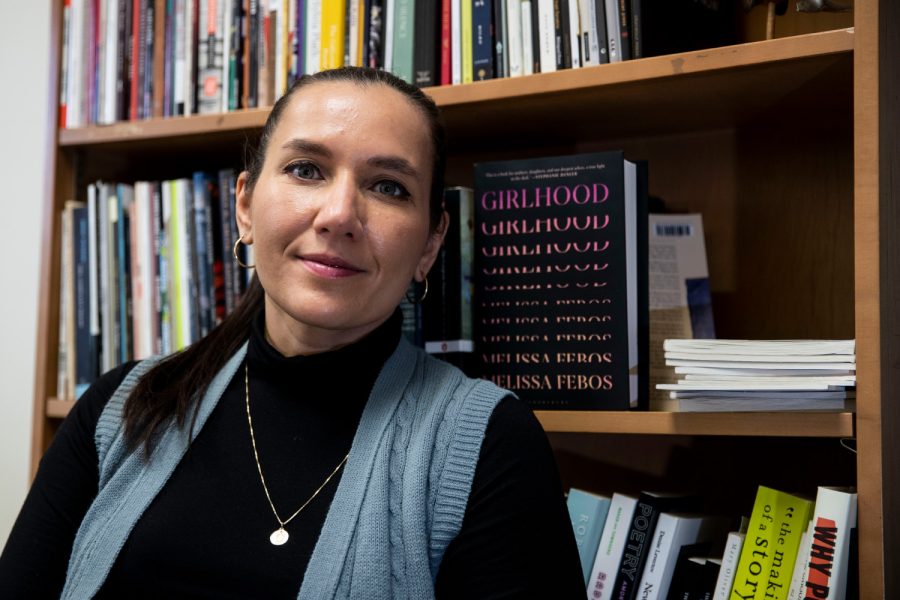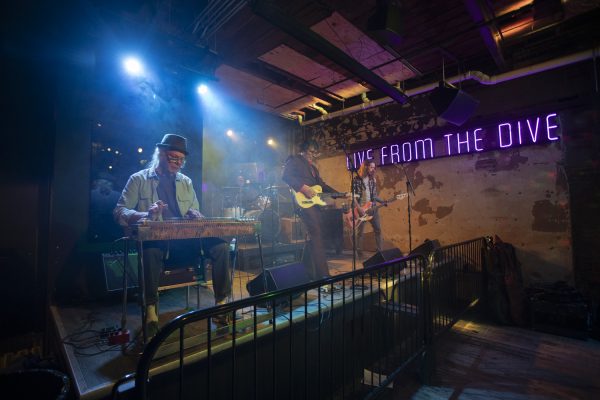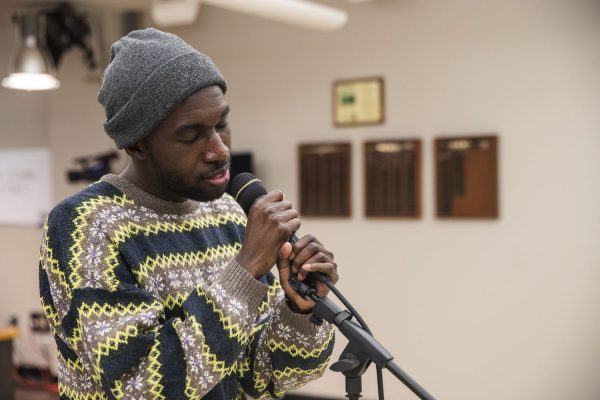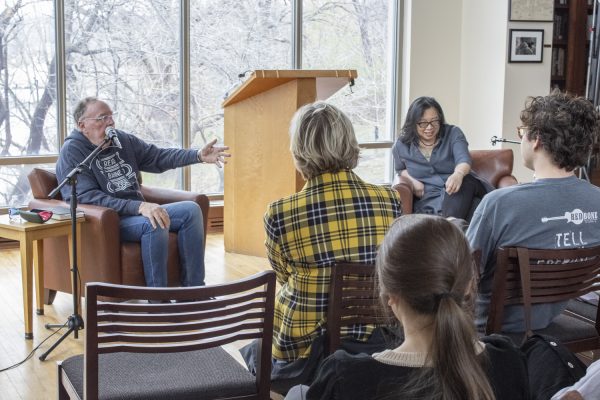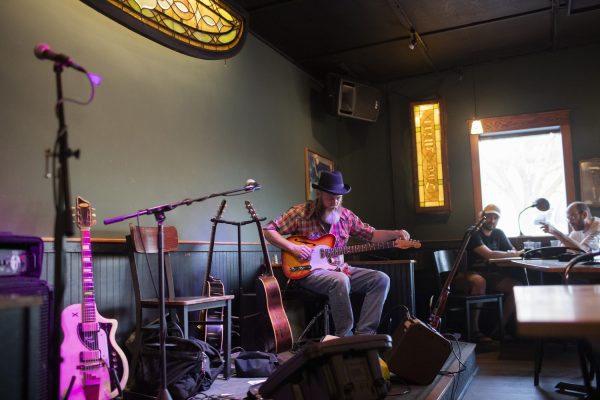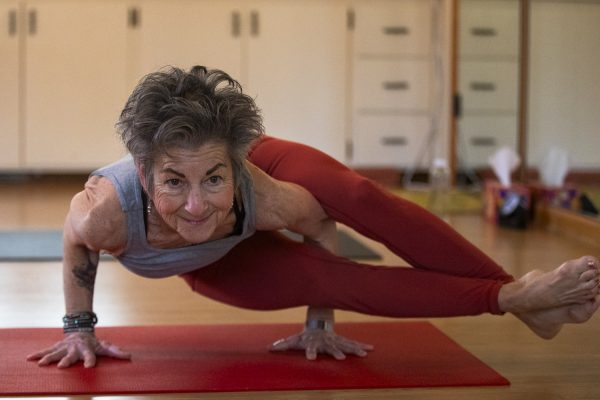Ask the Author: Melissa Febos
Melissa Febos was recently awarded the 2021 National Book Critics Circle Award for Criticism. She is an associate professor at UI and teaches in the Nonfiction Writing Program. On March 15, Febos published Body Work: The Radical Power of Personal Narrative.
Author and Associate Professor Melissa Febos poses for a portrait in the English Philosophy Building at the University of Iowa on Thursday, Jan. 27, 2022.
April 19, 2022
RELATED: UI English professor Donika Kelly receives Anisfield-Wolf Award for poetry book ‘The Renunciations’
Melissa Febos was recently awarded the 2021 National Book Critics Circle Award for Criticism for her book, Body Work: The Radical Power of Personal Narrative. She is an associate professor at UI and teaches in the Nonfiction Writing Program. Her book, Body Work, is a writer’s craft book and personal memoir that explores writing intimately, factoring in everything from “navel-gazing” to the physical work of writing about the self. Febos currently lives in Iowa City with her wife, Donika Kelly, who also works as an English professor at UI.
The Daily Iowan: Why did you decide to write Body Work?
Febos: I decided to write Body Work because I found myself confronted with students in my nonfiction classes who were struggling with really similar issues of feeling inhibited and writing about their personal experiences, and I kept responding to them in similar ways and refining the ways that I found to encourage them through those inhibitions, and I just wanted to share those responses with a wider audience because it was becoming clear to me how many people suffered from these particular kinds of inhibitions unnecessarily.
DI: Can a writer put too much personal information into nonfiction writing?
Febos: I think it’s really up to the artist to decide what is important and integral to the work that they’re making and also what their personal boundaries are for what they feel comfortable and willing to share. What I found in my own experience is that when I am writing in the privacy of my own process, I tend to put the most intimate details, which tend to make their way into my early drafts. Once I have sort of figured out what the real shape of the thing I’m writing is, then I can go back and decide if there are things I’m not ready to divulge or if it’ll hurt other people or if it’s not mine to share, but in the early stages I sort of put blinders on in terms of what other people are gonna think, and just try to figure out what the art I’m making is.
DI: What are your feelings on navel-gazing?
Febos: I am all for it. I am pro-navel-gazing and I am interested in reading as many essays about actually gazing at one’s navel as my students are interested in writing.
DI: What is liberating about writing personal memoirs and what positive impacts can they result in for yourself and others?
Febos: Oh, so many. I’ll just speak for myself here and say that the craft of writing nonfiction gives me enough distance from some of my most painful memories and experiences so that I can face them and make sense of them and integrate them psychologically and narratively. And the process of writing about my own experience has transformed my relationship to experience and to perception, and it has been totally transformative in many ways.
DI: Can writing be disentangled from our personal lives?
Febos: I don’t think so. I mean, primarily because you can’t separate the art from the artist you know, like writing. All art is a product of experience and perception and ideas, and we get our ideas from living, and so I think that there is a there’s always sort of a breadcrumb trail back to our personal life, even if we’re not taking it for a subject in art, the happenings the events of our lives are part of what creates our personalities, and our personalities are part of what makes our art distinct.
DI: So how was writing impacted your worldview?
Febos: Oh my goodness. I think I wouldn’t know what my worldview was at all without writing. It is almost, almost entirely from the process of writing, which, for me, is very much a process of thinking through language. It is almost entirely through that process that I’ve clarified what my worldview is, insofar as I have one.
DI: How would you advise writers to be considerate of the people they’re writing about?
Febos: Oh. Well, I would say that a writer should always be harder on herself than anyone else. She’s implicating in her story, and I think every writer needs to think very conscientiously about what is theirs to share. Yeah. I have a lot to say about that. There’s a whole chapter in it in my craft book, but I’d say those are the two main things.
DI: What is your best writing tip?
Febos: This was like the hardest question — my best writing tip is to, I don’t know, to write what feels most urgent and pleasurable, you know, to write into the subjects that call to you, however scary, or embarrassing, or silly they might feel.



